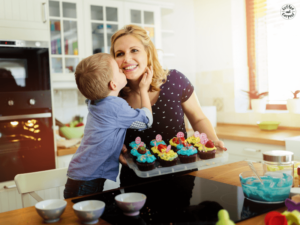Kindness and compassion are vital in the development of young children’s social competence and socioemotional skills.
Being kind is an intentional act that benefits others for its own sake when one is not required to do so. It is generally regarded as a virtue. A kind person shows a genuine, deep, and selfless concern for people without expecting anything in return.
The Development Of Kindness In Children
Kindness may not be understood by young children as it is by adults. It is conceptualized differently at different ages due to different cognitive understanding.
Children at certain ages may articulate consistent, rational reasons for judging kindness differently. When they are young, kindness is likely measured in terms of the consequences, whereas older children consider the intentions of the person who performs the act.
Kindness does not develop in a homogeneous, linear fashion. Between the ages of 5 and 7, children shift to judge kindness in adult-like ways.
Empathy, the vicarious sharing of the emotions of others, is one of the main kind emotions that motivate kind behaviors. The development of empathy then follows in older kids from middle childhood to early adolescence.
You should read: Top 5 Tips For Reducing Waste in Your Home
How To Teach Kindness To Kids
Developing kindness and compassion for others is an integral part of young children’s social emotional development.
However, teaching children kindness is not a one-size-fits-all task.
They need to be taught in a developmentally appropriate way that includes both across-age and within-age variation.
A HOME ENVIRONMENT FILLED WITH KINDNESS
Kindness begins at home. Kind character traits don’t appear spontaneously in children without being exposed to nurturing adults.
Kids learn by watching the actions of adults. They need to see that their parents live these concepts in their everyday lives rather than just talk about them.
Younger kids learn to be kind by seeing concrete actions and practical ways to do so in real life.
Kindness is also reciprocal. Those who receive kindness are more likely to show it to others.
TEACH THEM EMPATHY
Empathy is the ability to understand, feel, and share another person’s feelings. It is essential for the development of kindness in children.
The best way to help children develop empathy is to be an emotionally attune parent and show our children understanding and empathy.
PRACTICE AND FORM CONSIDERATE HABITS
Encourage children to perform little acts of kindness for others on a regular basis.
These powerful habits can help develop thoughtful kids and compassionate people.
Kind deeds like saying hi to an elderly neighbor, donating old toys, and volunteering at the animal shelter can help children practice kindness and feel good about themselves.
Being caring, helpful, considerate, and doing little things for others can make a big difference in people’s lives.
TEACH THE SPIRIT OF KINDNESS
Kindness is a selfless act that should be a clear manifestation of virtue, not a manipulation.
Helping others for the sake of receiving rewards or praises in return does not qualify as genuine kindness.
In early childhood, parents can encourage kids to celebrate kind behaviors such as sharing, helping, comforting, and giving to show that they are valued, acknowledged, and celebrated.
READ AND DISCUSS LITERATURE TOGETHER
The concept of kindness can be difficult for younger children to comprehend compared to actual behavior and results.
Among the three components of kindness, parents can start with teaching kind behaviors because the understanding of kindness is very concrete and factual for young kids.
Character-development literature or picture books can help them understand what constitutes kindness and its outcomes. Stories in these children’s books can indirectly shape and instill ethical values. They serve as good starting points for discussions about being good people and doing nice things for others.
Parents can choose books that are age-appropriate and consistent with the moral principles they hold dear.
TEACH EMOTIONAL REGULATION
The ability to self-regulate emotions is essential to kindness. When you’re angry, depressed, or anxious, it’s hard to be nice to others.
To develop a sense of inner strength and kindness, children must be able to regulate their emotions and respond successfully to environmental challenges.
A warm, responsive parenting style is associated with better self-regulatory skills. But if parents are harsh, children will not be able to think about how to be nice to others, one more reason to instill kindness in children using kind-and-firm parenting.
If you like this post, please share it with your friends. And if you like our blog, you should check our website. Also, we invite you to follow at Instagram, Facebook, Twitter, and Pinterest




